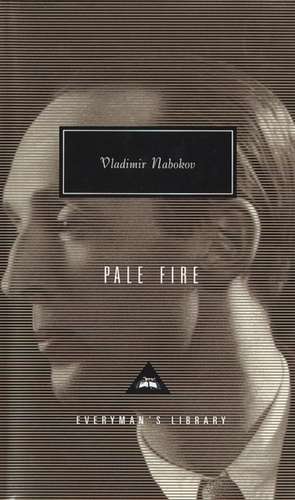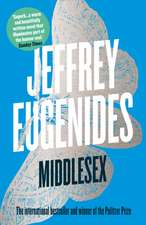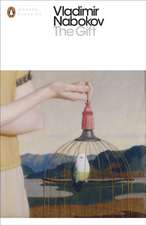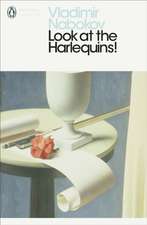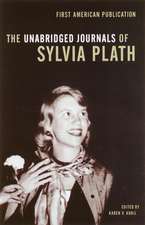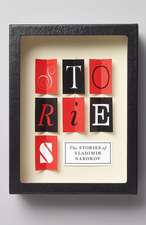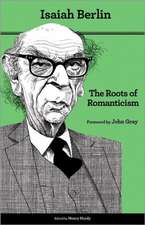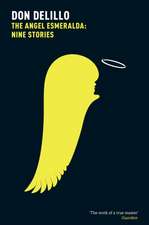Pale Fire: Everyman's Library CLASSICS
Autor Vladimir Nabokoven Limba Engleză Hardback – 18 mar 1992
A novel constructed around the last great poem of a fictional American poet, John Shade, and an account of his death. The poem appears in full and the narrative develops through the lengthy, and increasingly eccentric, notes by his posthumous editor.
| Toate formatele și edițiile | Preț | Express |
|---|---|---|
| Paperback (3) | 52.77 lei 24-35 zile | +18.42 lei 7-11 zile |
| Penguin Books – 30 aug 2000 | 52.77 lei 24-35 zile | +18.42 lei 7-11 zile |
| Orion Publishing Group – 29 mai 2024 | 53.37 lei 3-5 săpt. | +26.87 lei 7-11 zile |
| Vintage Publishing – 31 mar 1989 | 96.30 lei 3-5 săpt. | |
| Hardback (2) | 81.55 lei 24-35 zile | +31.62 lei 7-11 zile |
| EVERYMAN – 18 mar 1992 | 81.55 lei 24-35 zile | +31.62 lei 7-11 zile |
| Everyman's Library – 29 feb 1992 | 172.02 lei 3-5 săpt. |
Din seria Everyman's Library CLASSICS
- 12%
 Preț: 76.82 lei
Preț: 76.82 lei - 12%
 Preț: 118.20 lei
Preț: 118.20 lei - 14%
 Preț: 60.89 lei
Preț: 60.89 lei - 11%
 Preț: 89.68 lei
Preț: 89.68 lei - 23%
 Preț: 102.65 lei
Preț: 102.65 lei - 13%
 Preț: 74.71 lei
Preț: 74.71 lei - 13%
 Preț: 86.26 lei
Preț: 86.26 lei - 14%
 Preț: 84.70 lei
Preț: 84.70 lei - 9%
 Preț: 94.86 lei
Preț: 94.86 lei - 17%
 Preț: 110.12 lei
Preț: 110.12 lei - 11%
 Preț: 90.25 lei
Preț: 90.25 lei - 13%
 Preț: 74.90 lei
Preț: 74.90 lei - 13%
 Preț: 85.11 lei
Preț: 85.11 lei - 11%
 Preț: 112.93 lei
Preț: 112.93 lei - 12%
 Preț: 75.81 lei
Preț: 75.81 lei - 14%
 Preț: 73.47 lei
Preț: 73.47 lei - 13%
 Preț: 68.30 lei
Preț: 68.30 lei - 13%
 Preț: 114.51 lei
Preț: 114.51 lei - 16%
 Preț: 105.06 lei
Preț: 105.06 lei - 12%
 Preț: 76.74 lei
Preț: 76.74 lei - 14%
 Preț: 90.21 lei
Preț: 90.21 lei - 12%
 Preț: 76.62 lei
Preț: 76.62 lei - 14%
 Preț: 72.08 lei
Preț: 72.08 lei - 12%
 Preț: 75.39 lei
Preț: 75.39 lei - 12%
 Preț: 87.10 lei
Preț: 87.10 lei - 11%
 Preț: 89.81 lei
Preț: 89.81 lei - 11%
 Preț: 90.41 lei
Preț: 90.41 lei - 13%
 Preț: 63.36 lei
Preț: 63.36 lei - 13%
 Preț: 366.37 lei
Preț: 366.37 lei - 13%
 Preț: 74.61 lei
Preț: 74.61 lei - 13%
 Preț: 62.73 lei
Preț: 62.73 lei - 11%
 Preț: 90.22 lei
Preț: 90.22 lei - 12%
 Preț: 92.90 lei
Preț: 92.90 lei - 13%
 Preț: 85.00 lei
Preț: 85.00 lei - 13%
 Preț: 73.59 lei
Preț: 73.59 lei - 14%
 Preț: 62.03 lei
Preț: 62.03 lei -
 Preț: 109.75 lei
Preț: 109.75 lei - 10%
 Preț: 85.75 lei
Preț: 85.75 lei - 12%
 Preț: 111.39 lei
Preț: 111.39 lei - 13%
 Preț: 74.80 lei
Preț: 74.80 lei - 12%
 Preț: 104.38 lei
Preț: 104.38 lei - 19%
 Preț: 142.55 lei
Preț: 142.55 lei - 13%
 Preț: 79.64 lei
Preț: 79.64 lei - 25%
 Preț: 158.17 lei
Preț: 158.17 lei - 14%
 Preț: 84.29 lei
Preț: 84.29 lei - 10%
 Preț: 72.78 lei
Preț: 72.78 lei - 12%
 Preț: 88.02 lei
Preț: 88.02 lei - 12%
 Preț: 81.12 lei
Preț: 81.12 lei - 13%
 Preț: 97.36 lei
Preț: 97.36 lei
Preț: 81.55 lei
Preț vechi: 96.20 lei
-15% Nou
Puncte Express: 122
Preț estimativ în valută:
15.61€ • 16.95$ • 13.11£
15.61€ • 16.95$ • 13.11£
Carte disponibilă
Livrare economică 04-15 aprilie
Livrare express 18-22 martie pentru 41.61 lei
Preluare comenzi: 021 569.72.76
Specificații
ISBN-13: 9781857150674
ISBN-10: 1857150678
Pagini: 318
Dimensiuni: 128 x 211 x 22 mm
Greutate: 0.41 kg
Editura: EVERYMAN
Seria Everyman's Library CLASSICS
Locul publicării:United Kingdom
ISBN-10: 1857150678
Pagini: 318
Dimensiuni: 128 x 211 x 22 mm
Greutate: 0.41 kg
Editura: EVERYMAN
Seria Everyman's Library CLASSICS
Locul publicării:United Kingdom
Notă biografică
Vladimir Vladimirovich Nabokov was born on April 23, 1899, in St. Petersburg, Russia. The Nabokovs were known for their high culture and commitment to public service, and the elder Nabokov was an outspoken opponent of antisemitism and one of the leaders of the opposition party, the Kadets. In 1919, following the Bolshevik revolution, he took his family into exile. Four years later he was shot and killed at a political rally in Berlin while trying to shield the speaker from right-wing assassins.
The Nabokov household was trilingual, and as a child Nabokov was already reading Wells, Poe, Browning, Keats, Flaubert, Verlaine, Rimbaud, Tolstoy, and Chekhov, alongside the popular entertainments of Sir Arthur Conan Doyle and Jules Verne. As a young man, he studied Slavic and romance languages at Trinity College, Cambridge, taking his honors degree in 1922. For the next eighteen years he lived in Berlin and Paris, writing prolifically in Russian under the pseudonym Sirin and supporting himself through translations, lessons in English and tennis, and by composing the first crossword puzzles in Russian. In 1925 he married Vera Slonim, with whom he had one child, a son, Dmitri.
Having already fled Russia and Germany, Nabokov became a refugee once more in 1940, when he was forced to leave France for the United States. There he taught at Wellesley, Harvard, and Cornell. He also gave up writing in Russian and began composing fiction in English. In his afterword to Lolita he claimed: "My private tragedy, which cannot, and indeed should not, be anybody's concern, is that I had to abandon my natural idiom, my untrammeled, rich, and infinitely docile Russian tongue for a second-rate brand of English, devoid of any of those apparatuses–the baffling mirror, the black velvet backdrop, the implied associations and traditions–which the native illusionist, frac-tails flying, can magically use to transcend the heritage in his own way." [p. 317] Yet Nabokov's American period saw the creation of what are arguably his greatest works, Bend Sinister (1947), Lolita (1955), Pnin (1957), and Pale Fire (1962), as well as the translation of his earlier Russian novels into English. He also undertook English translations of works by Lermontov and Pushkin and wrote several books of criticism. Vladimir Nabokov died in Montreux, Switzerland, in 1977.
From the Hardcover edition.
The Nabokov household was trilingual, and as a child Nabokov was already reading Wells, Poe, Browning, Keats, Flaubert, Verlaine, Rimbaud, Tolstoy, and Chekhov, alongside the popular entertainments of Sir Arthur Conan Doyle and Jules Verne. As a young man, he studied Slavic and romance languages at Trinity College, Cambridge, taking his honors degree in 1922. For the next eighteen years he lived in Berlin and Paris, writing prolifically in Russian under the pseudonym Sirin and supporting himself through translations, lessons in English and tennis, and by composing the first crossword puzzles in Russian. In 1925 he married Vera Slonim, with whom he had one child, a son, Dmitri.
Having already fled Russia and Germany, Nabokov became a refugee once more in 1940, when he was forced to leave France for the United States. There he taught at Wellesley, Harvard, and Cornell. He also gave up writing in Russian and began composing fiction in English. In his afterword to Lolita he claimed: "My private tragedy, which cannot, and indeed should not, be anybody's concern, is that I had to abandon my natural idiom, my untrammeled, rich, and infinitely docile Russian tongue for a second-rate brand of English, devoid of any of those apparatuses–the baffling mirror, the black velvet backdrop, the implied associations and traditions–which the native illusionist, frac-tails flying, can magically use to transcend the heritage in his own way." [p. 317] Yet Nabokov's American period saw the creation of what are arguably his greatest works, Bend Sinister (1947), Lolita (1955), Pnin (1957), and Pale Fire (1962), as well as the translation of his earlier Russian novels into English. He also undertook English translations of works by Lermontov and Pushkin and wrote several books of criticism. Vladimir Nabokov died in Montreux, Switzerland, in 1977.
From the Hardcover edition.
Recenzii
"This centaur-work, half poem, half prose…is a creation of perfect beauty, symmetry, strangeness, originality and moral truth. Pretending to be a curio, it cannot disguise the fact that it is one of the great works of art of this century." —Mary McCarthy, The New Republic
"As a literary tour de force it surpasses anything else Mr. Nabokov has done." —Atlantic Monthly
"Scintillating, brilliantly inventive…[Pale Fire] has almost as many layers of meaning as an artichoke has petals." —Commonwealth
"Of all [Nabokov's] inventions, Pale Fire is the wildest, the funniest and the most earnest. It is like nothing on God's earth." —New York Herald Tribune
"A monstrous, witty, intricately entertaining work . . . done with dazzling skill." —Time
"Nabokov writes prose the only way it should be written, that is, ecstatically." —John Updike
"As a literary tour de force it surpasses anything else Mr. Nabokov has done." —Atlantic Monthly
"Scintillating, brilliantly inventive…[Pale Fire] has almost as many layers of meaning as an artichoke has petals." —Commonwealth
"Of all [Nabokov's] inventions, Pale Fire is the wildest, the funniest and the most earnest. It is like nothing on God's earth." —New York Herald Tribune
"A monstrous, witty, intricately entertaining work . . . done with dazzling skill." —Time
"Nabokov writes prose the only way it should be written, that is, ecstatically." —John Updike
